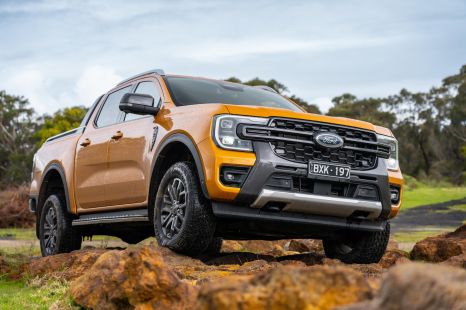

William Stopford
Ford Ranger and Everest recalled
52 Minutes Ago
2021 saw sales growth across the market, including the premium brands – though some were more successful than others.

Marketplace Editor
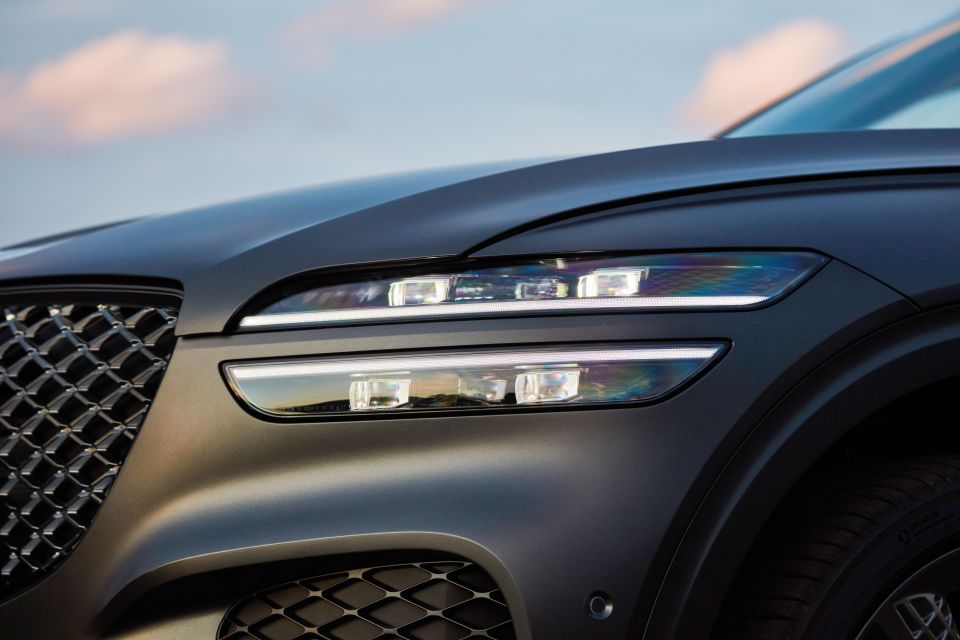

Marketplace Editor
The premium brands enjoyed similar success to their mainstream counterparts during the course of 2021, though a handful of players saw decline in a growing market.
Once again Mercedes-Benz Cars topped the premium sales charts, though the three-pointed star was down 3.8 per cent on its 2020 yearly result, followed by BMW and Audi.
Lexus and Volvo were fewer than 300 units apart fighting for fourth place, while Korean upstart Genesis saw huge growth to leapfrog Italy’s Alfa Romeo.
| Brand | Volume 2021 | % Change 2020 |
|---|---|---|
| Mercedes-Benz Cars | 28,348 | -3.8 |
| BMW | 24,891 | +5.8 |
| Audi | 16,003 | +0.9 |
| Lexus | 9290 | +5.0 |
| Volvo Car | 9028 | +17.2 |
| Land Rover | 6459 | +1.9 |
| Porsche | 4428 | +4.4 |
| Mini | 3579 | +15.3 |
| Jaguar | 1222 | -7.8 |
| Genesis | 734 | +220.5 |
| Alfa Romeo | 618 | -15.8 |
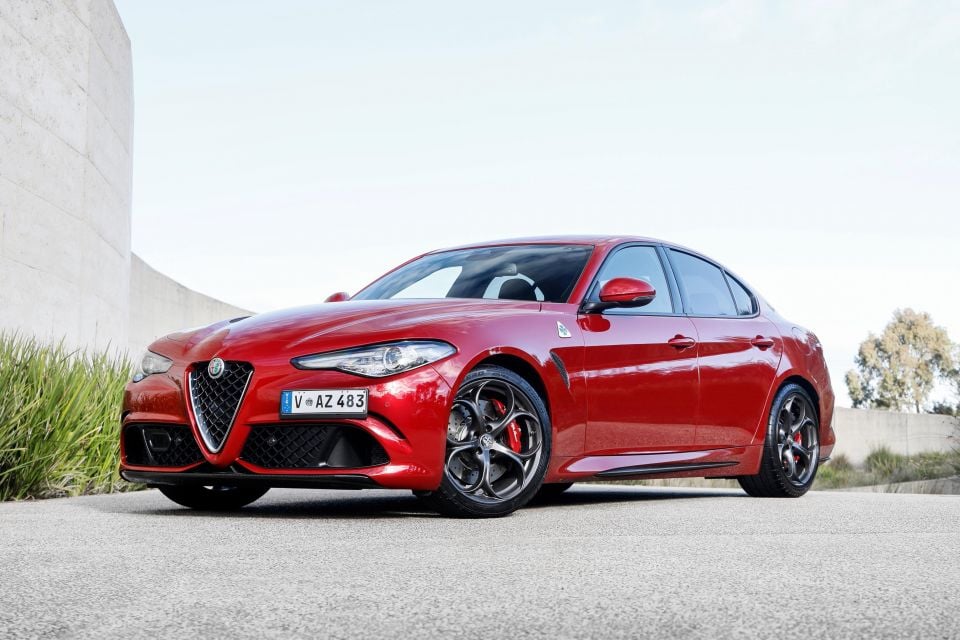
Italy’s iconic marque shrunk further in 2021, despite the arrival of its updated Giulia and Stelvio lines.
The Giulia sedan actually posted growth in December and 2021 overall (31 units and 323 units respectively), up 67.4 per cent on 2020’s yearly figure.
Fortunes weren’t as good for the related Stelvio crossover, which fell 53.6 per cent to 192 units for the year (down from 414 in 2020). By comparison, the top-selling BMW X3 delivered 4242 sales for the year. Alfa’s local division has also been running out its 4C sports car and Giulietta hatchback, with the former up 171.4 per cent to 19 sales for the year, while the ageing Giulietta was down 30 per cent to just 84 units.
No doubt the Italian marque is keen to get back into the entry-level segments following the Giulietta’s departure with the upcoming Tonale crossover, an Audi Q3-sized SUV likely based on the same platform as the Jeep Compass, or perhaps even the Peugeot 3008 thanks to the company’s new family ties.
It’s expected to debut early in 2022 with an available plug-in hybrid drivetrain, though Australian timing is unclear at this stage. Alfa Romeo has gone on record saying it’s keen to bring the Tonale Down Under and remains committed to the Australian market despite recent challenges.
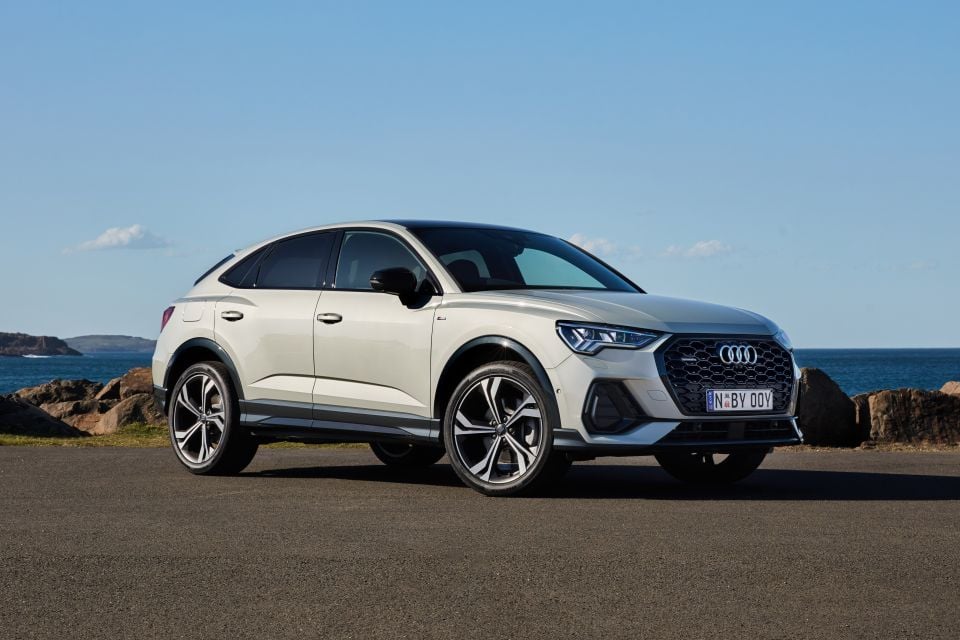
Despite losing significant volume from its popular A3 line between product generations, the four-ringed German marque managed to post yearly growth of 0.9 per cent overall, with just about all of its other model lines growing in 2021.
With 16,003 yearly sales, Audi was up by almost 200 units on the year prior, with standout performances coming from its SUV model lines.
Gold went to the Audi Q3 SUV and Sportback line-up, with 5707 sales for the calendar year (+39.5 per cent), or around 1600 units up on 2020. The Q3 was Australia’s favourite premium small SUV by some margin, accounting for 27.2 per cent market share, and beat out its next best-placed rival, the Volvo XC40, by over 2000 sales.
Another success story was the updated Q5 family, which now includes a Sportback model to duke it out with the likes of the BMW X4 and Mercedes-Benz GLC Coupe.
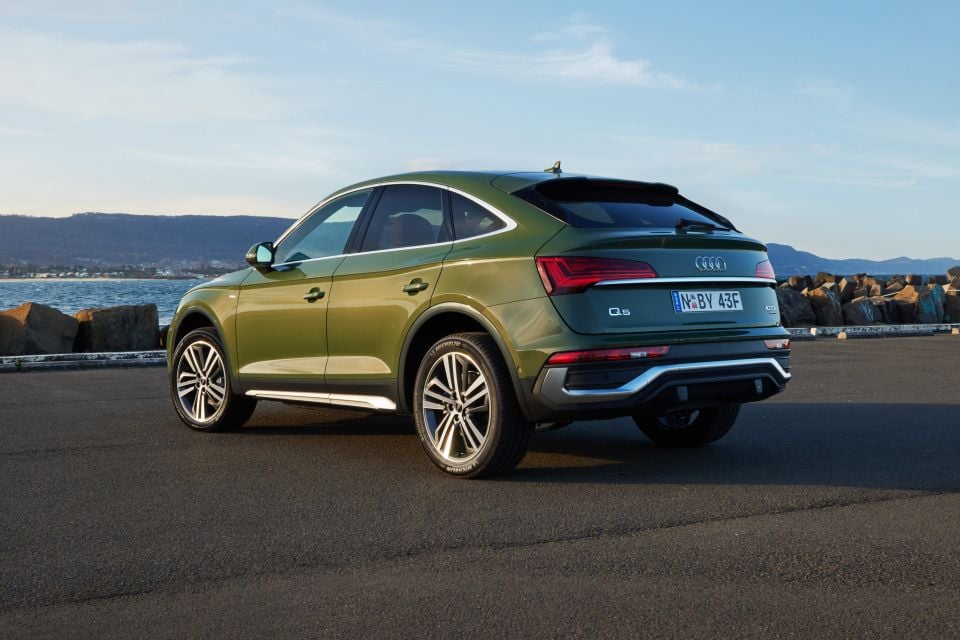
The popular mid-sizer returned 3604 registrations in 2021 (+20.5 per cent), which put it ahead of the Mercedes-Benz GLB (3345 units), Lexus NX (3091 units) and Porsche Macan (2328 units) but behind the BMW X3/X4 (5223 units combined), Mercedes-Benz GLC SUV/Coupe (4206 units combined) and Volvo XC60 (3688 units).
Other worthy mentions include the pint-sized Q2, which grew 26.2 per cent to 1621 units, no doubt helped by the launch of the facelifted range and new SQ2 performance variant, and the seven-seat Q7 – while down 5.1 per cent to 1646 sales – continued to contribute solid volume.
Rounding out the company’s highlights were the A5 and A5 Sportback ranges, which were up 15.7 per centand12.8 per cent to 206and625 yearly sales respectively. The flagship Audi Q8 also grew by 1.7 per cent to 349 sales in 2021.
Several key launches are coming in 2022 for Audi Australia, most being key performance models. The new-generation Audi A3 Sportback and Sedan range will arrive early this year alongside the S3 performance models, followed by the all-electric e-tron S performance SUV models, RS3 Sportback and Sedan, then the V8 petrol-engined SQ7 TFSI and SQ8 TFSI, and finally the e-tron GT and RS e-tron GT which share their bones with the electric Porsche Taycan.
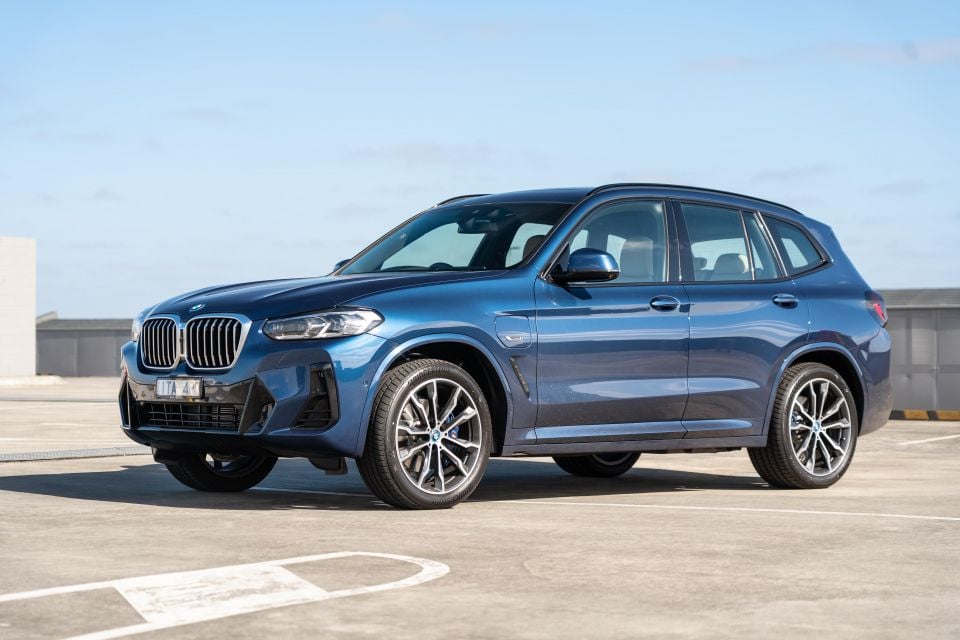
Bavaria’s finest just missed the 25,000-unit barrier in 2021, off the back of strong performances from key model lines.
The X3 SUV was once again the brand’s clear top-seller, with 4242 yearly sales (down 2.7 per cent), followed by the related 3 Series (3982 units, up 16.9 per cent) and then the large X5 SUV (3173 units, up 7.3 per cent).
Both the X3 and 3 Series were the top-selling nameplates in their respective premium segments (medium SUV and medium passenger), though the X5 couldn’t top the ever-popular Mercedes-Benz GLE in the premium large SUV class.
Elsewhere in the BMW range, the entry-level X1 SUV (2986 units, down 2.4 per cent), 1 Series hatchback (2741 units, up 18.7 per cent) and 2 Series Gran Coupe (2072 units, up 39.2 per cent) all returned solid volume.
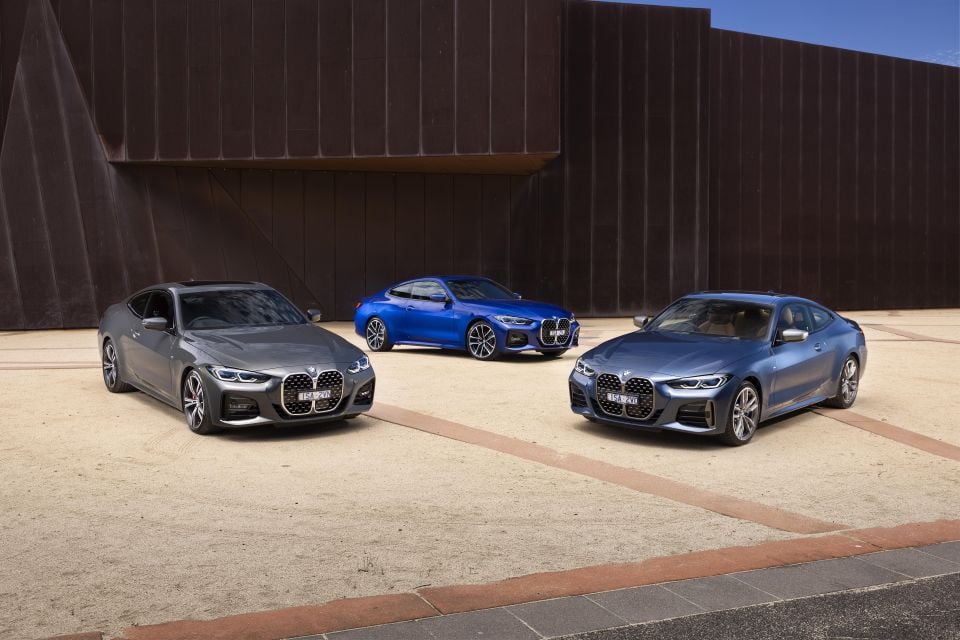
Meanwhile, the most-improved award goes to the new 4 Series line-up, which grew 131.6 per cent to 1107 units in Coupe/Convertible guise, and up 248.1 per cent to 181 units in Gran Coupe form – despite the latter only launching in the late stages of 2021.
Other popular model lines fell slightly in 2021, including the X2 (down 6.8 per cent to 575 units), X4 (down 22.9 per cent to 981 units), X6 (down 4.9 per cent to 581 units) and X7 (down 8.7 per cent to 791 units). The 5 Series (down 15.7 per cent to 605 units) and 7 Series (down 22.9 per cent to 81 units) also fell.
In 2022 BMW will be going on a big electrification push with its all-new iX (35 units), i4 and iX3 EVs. The iX and iX3 have just started arriving in dealerships, with the 4 Series Gran Coupe-based i4 due in the first quarter of 2022.
The 2 Series Coupe will also see its new generation on sale for a full calendar year, hoping to claw back some ground after falling 27.7 per cent (454 units) in 2021 as the company switched product generations.
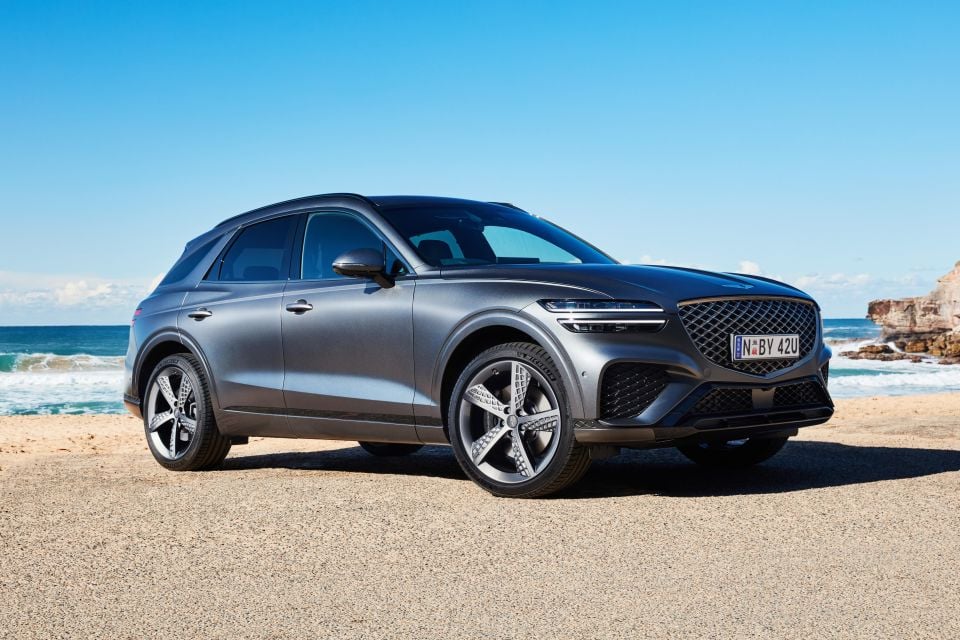
Hyundai Motor Group’s new-ish luxury arm Genesis has been consistently panned for its slim product portfolio and exclusive (or limited, as some say) dealer network by naysayers. But, that didn’t stop the Korean upstart from posting substantial growth in 2021 and overtaking its first rival in the sales race – Alfa Romeo.
Key to the brand’s success was the launch of its new X3-rivalling GV70 crossover, which turned out to be the brand’s top seller for the year with 317 units, despite only arriving Down Under in July. It accounted for 1.1 per cent of premium medium SUV sales, though less then 10 per cent of the BMW X3’s volume.
The larger GV80 grew a whopping 451.9 per cent to 287 units in 2021, admittedly off a low base. At 1.4 per cent share of the premium large SUV market, the GV80 is still at one-sixth of the sales volume of the VW Touareg and Volvo XC90.
Genesis’s G70 Sedan and Shooting Brake as well as the E-Class-rivalling G80 couldn’t match the success of their crossover counterparts, falling 34.7 per cent and 10.2 per cent to 77 units and 53 units respectively.
The Korean luxury upstart has a big year ahead, with three all-electric models due to launch over the course of 2022. By mid-year, Genesis will launch the GV60 (the e-GMP sibling to the Hyundai Ioniq 5 and Kia EV6), as well as the Electrified G80 and Electrified GV70.
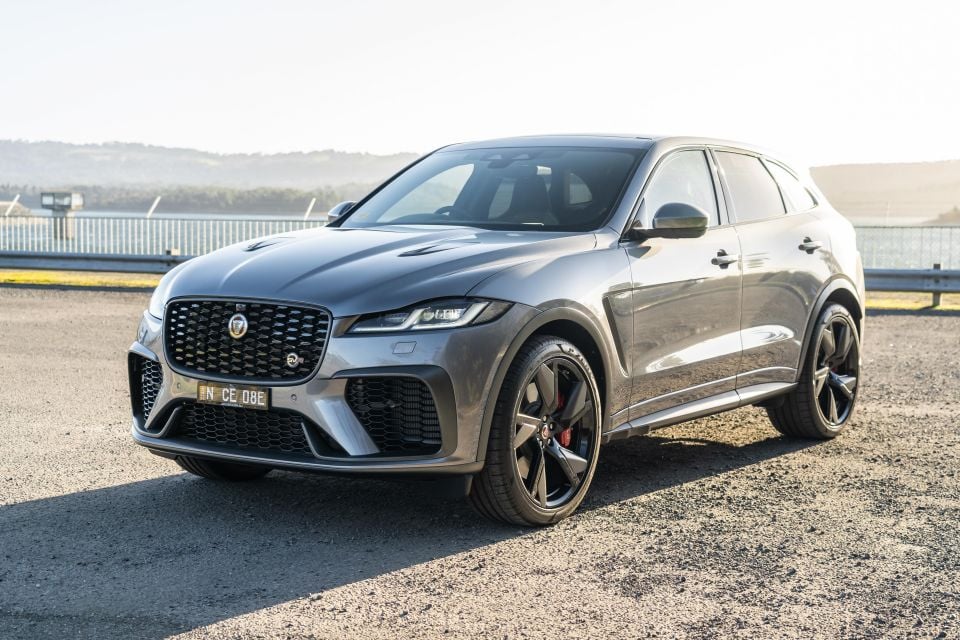
One of the handful of luxury-branded ‘losers’ in the 2021 sales race, Jaguar fell 7.8 per cent to 1222 units for the year.
While the F-Pace, F-Type and XF were up year-on-year, every other of the British marque’s model lines were down.
The brand’s top-seller, the E-Pace, fell 17.2 per cent to 548 units, followed by the aforementioned F-Pace that grew 28.9 per cent to 401 sales.
In third place was the 3 Series-rivalling XE sedan, which at 144 registrations was down 26.5 per cent on last year’s result.
The XF large sedan grew 14.3 per cent to 40 units, while the F-Type sports car held firm at 44 units for the year (up 4.8 per cent). Despite being a trailblazer in the EV space, the all-electric Jaguar I-Pace dropped 37.1 per cent to 44 units.
Unlike most rival brands, 2022 won’t be a big launching year for Jaguar. Late last year the brand went on record saying the current range will continue largely as is until 2025, when the British marque plans to overhaul its line-up to be electric-only.
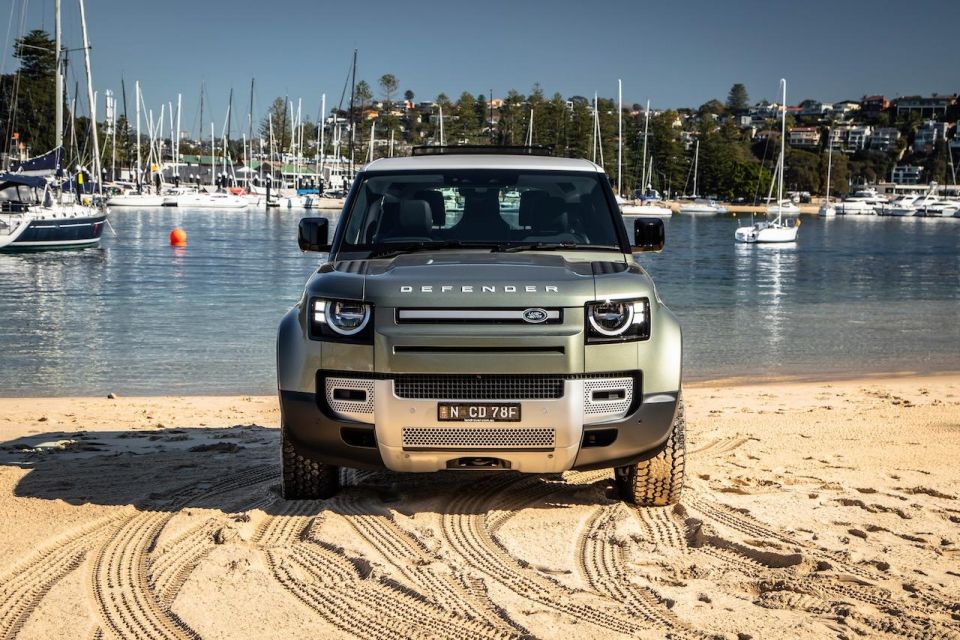
While Jaguar treads water, Land Rover (and Range Rover) posted growth in 2021, largely off the back of the new Defender. A total of 6459 units were sold for the year, up 1.9 per cent on 2020.
The reborn off-roader was the brand’s top-seller by some margin, with 1733 units (up 233.9 per cent) delivered. Silver and bronze in the line-up was awarded to the Range Rover Sport (1475 units, down 10.2 per cent) and Range Rover Evoque (1143 units, down 16.4 per cent) respectively.
In fact, the rest of the brand’s line-up were down, including the Discovery (534 units, down 32.8 per cent), Discovery Sport (843 units, down 30.0 per cent) and Range Rover Velar (569 units, down 11.8 per cent).
While Jaguar will be stagnant on new model launches for the next couple of years, Land Rover has several new models in the wings. The all-new Range Rover will arrive in June, a new-generation Range Rover Sport is expected to debut at some point this year, and the brand’s local arm is looking into launching more electrified models.
Deliveries of the updated Discovery and Discovery Sport are starting to get into full swing, and a revised MY23 Defender line-up is due to hit showrooms in April.
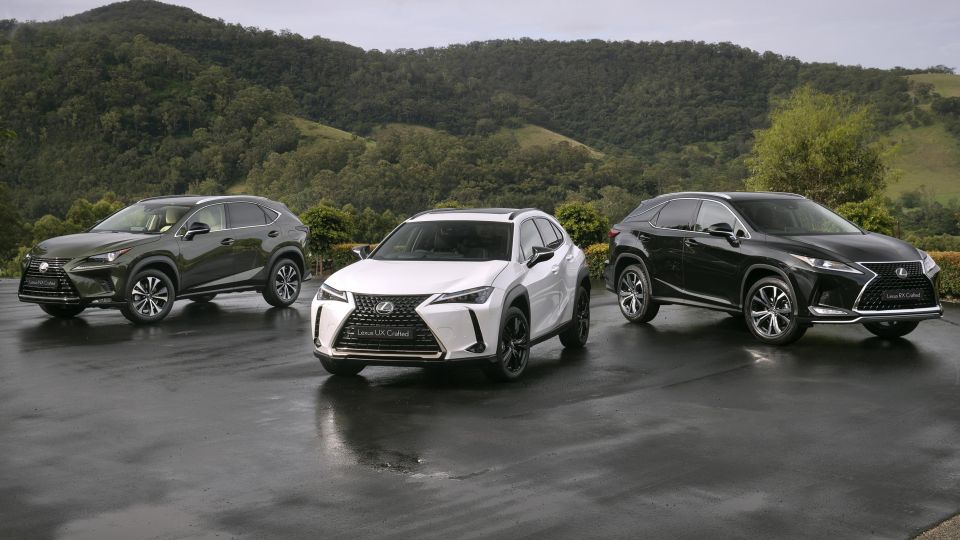
Toyota’s luxury arm continued its push towards 10,000 annual sales, but fell a little short at 9290 units (up 5.0 per cent).
That’s despite the discontinuation of several model lines due to new ADR laws around side impact collisions –including the long-running IS, RC and CT.
Atop the brand’s sales podium was the soon-to-be-replaced NX crossover, which sold 3091 units (down 12.1 per cent).
The all-new model arrives later this month, including the brand’s first plug-in hybrid option – read more here.
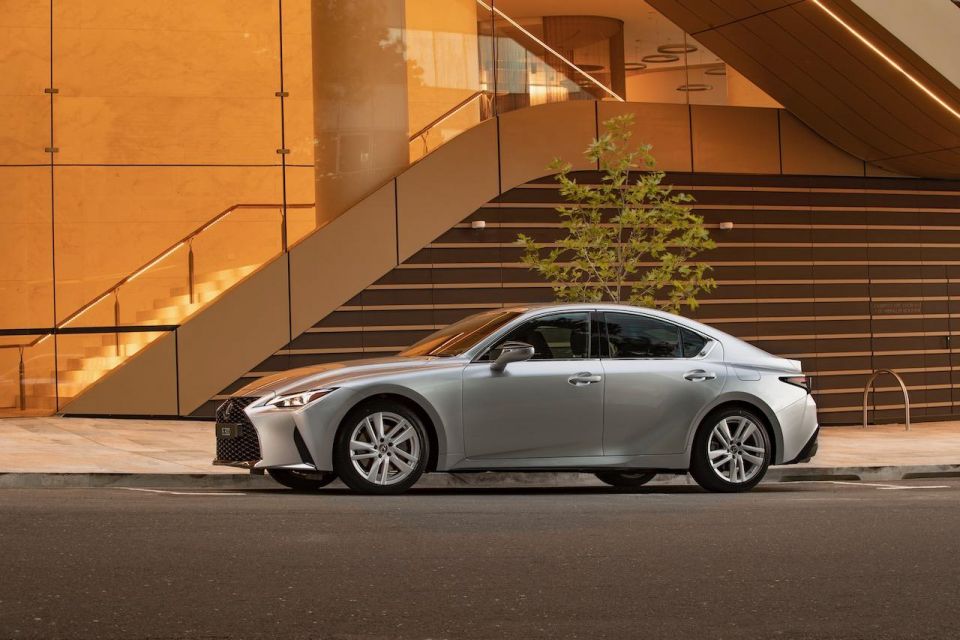
Second was the RX large crossover (1908 units, up 1.5 per cent) followed by the baby UX in third (1744 units, up 24.3 per cent) which added the brand’s first all-electric model this year in the form of the UX300e.
The IS sedan was the brand’s best-selling passenger model, though it’s now been removed from sale, posting a respectable 1143 sales (up 62.6 per cent). The Lexus ES continued its ascent with 36.9 per cent yearly growth to 802 units.
Other notable mentions include the LandCruiser 200-based Lexus LX off-roader, which with 300 sales (down 12.5 per cent) held relatively strong despite the release of the new LandCruiser 300 Series and the imminent arrival of a new generation some time later this year.
Also expected sometime in 2022 is the reveal of an all-new RX, based on the latest TNGA platform shared with the new Toyota Kluger. Lexus hasn’t indicated when we’ll see the new-gen crossover, but if the reveal is mid- to late-2022, we likely won’t see it Down Under until 2023.
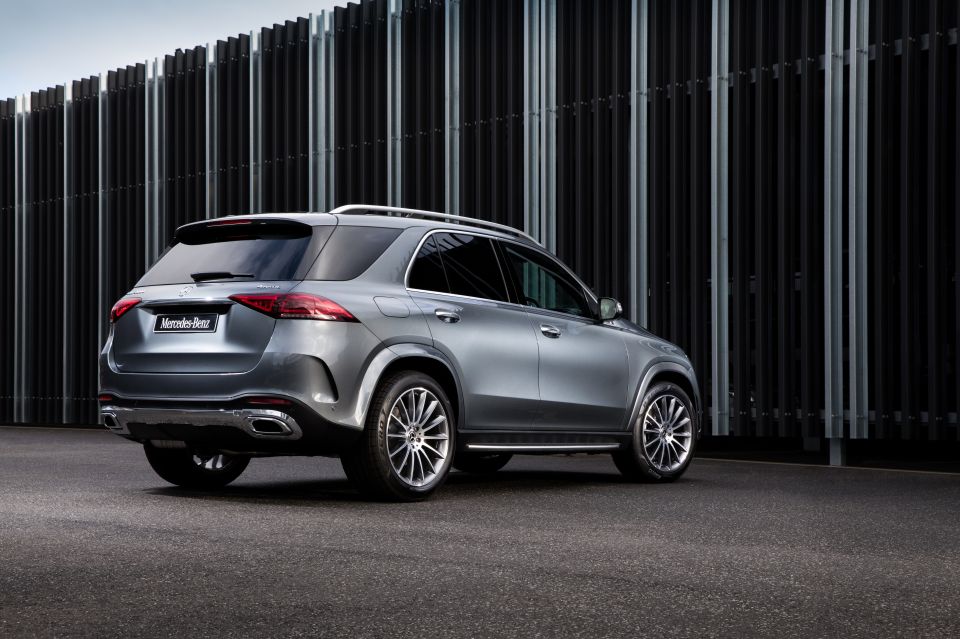
While it maintained its top spot on the premium sales charts, Mercedes-Benz fell by 3.8 per cent to 28,348 yearly sales.
Despite the slight fall, the three-pointed star led, even dominated most of the segments it competes in – albeit with a couple of exceptions.
The brand’s single top-selling model line for 2021 was the GLE SUV, with 3591 units (up 25.8 per cent) not including the GLE Coupe (1122 units, up 175.7 per cent). Tally up the entire GLE line-up’s sales and Mercedes accounted for 23 per cent of the premium large SUV market – or almost 1 in 4 sales.
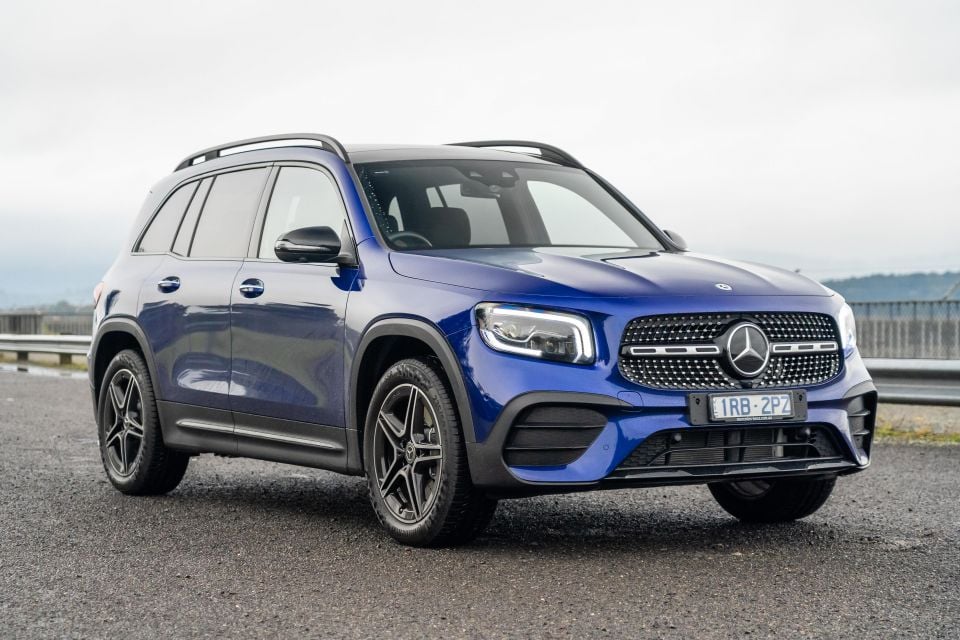
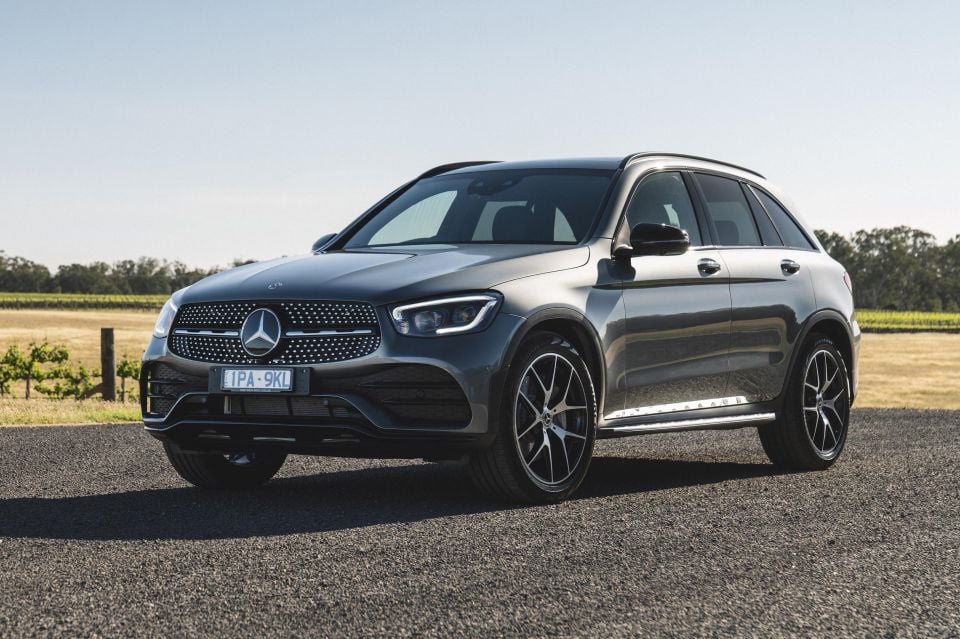
It’s a similar story in the premium medium SUV space, where with three separate model lines Benz accounted for a whopping 26.3 per cent of sales despite fierce competition. The GLC SUV saw 3435 units (down 23.2 per cent), the seven-seat GLB managed 3345 units (up 272.1 per cent), and the GLC Coupe added a further 771 units (down 42.0 per cent).
The GLS flagship also dominated its class, managing 1110 yearly sales (up 36.5 per cent) to snatch 27.2 per cent market share for the year. Huge. Next best in the segment was the BMW X7, with 791 sales (down 8.7 per cent) and 19.4 per cent share.
Beyond Benz’s dominant SUV performances, the brand’s passenger cars also did well.
The ageing C-Class – due for replacement imminently – returned 2832 units (down 16.2 per cent) and held 22.5 per cent share. Combined with the CLA (1299 units, down 37.6 per cent), and Mercedes accounted for 32.8 per cent of the segment – just behind BMW’s 33 per cent share with the 3 Series and 4 Series Gran Coupe.
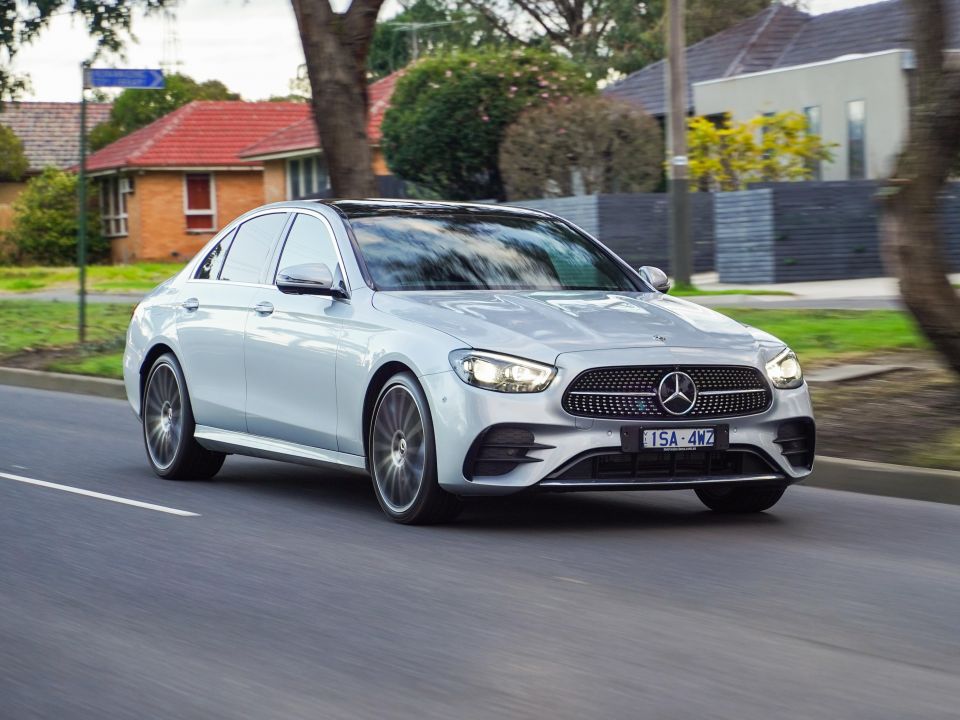
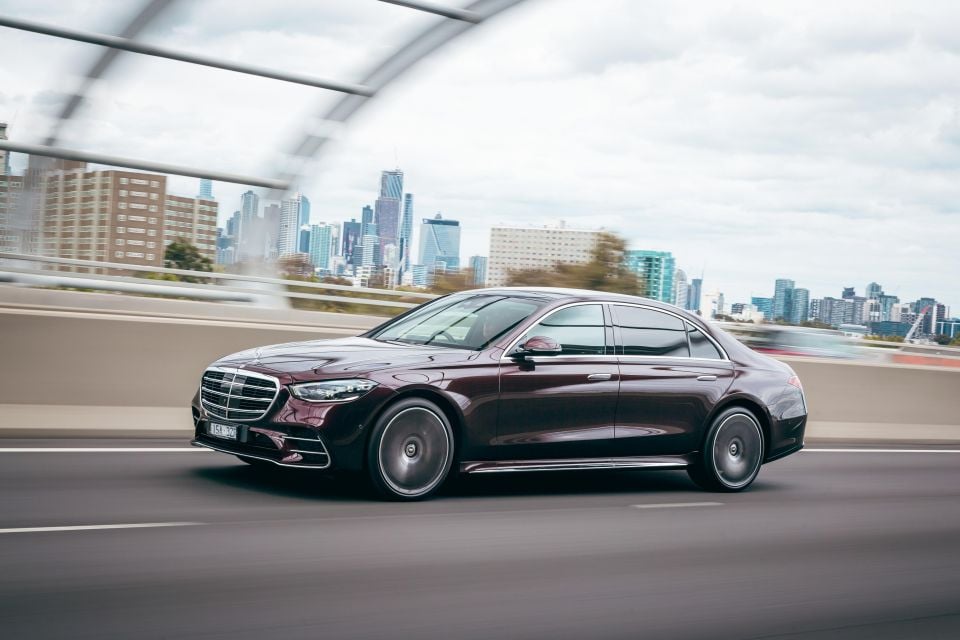
Further up the range, the larger E-Class accounted for 1 in 3 sales in its segment with 910 units (up 18.0 per cent), while the even larger S-Class flagship held 41.9 per cent share with 263 units for the year (up 61.3 per cent).
Other strong showings despite losses include the A-Class small car (3793 units, down 37.3 per cent), GLA crossover (2624 units, down 17.3 per cent), and the C-Class Coupe and Cabriolet (1131 units, down 7.7 per cent).
The G-Class (594 units, up 120.0 per cent) posted strong growth in 2021, while the new EQA electric companion to the GLA contributed 367 units in its first year on sale, overtaking the larger EQC (298 units, up 53.6 per cent).
Mercedes-Benz has a number of big launches coming this year, including the all-new C-Class, EQS electric sedan, the EQB electric seven-seat SUV, and the new AMG SL supercar.
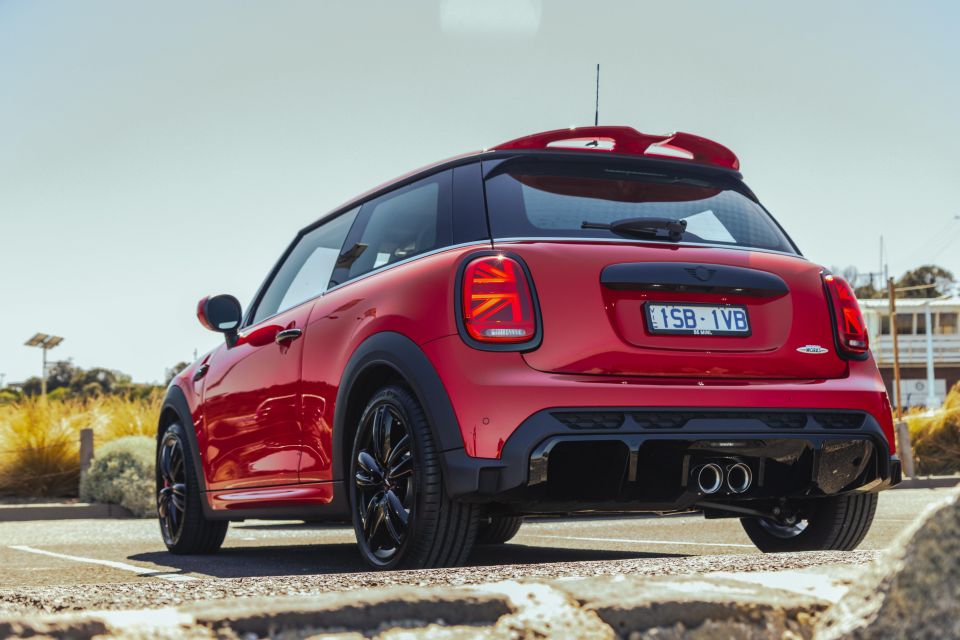
BMW’s retro-themed city car division was up 15.3 per cent to 3579 units in 2021, led by the updated Countryman and Hatch ranges.
Top of the tree for Mini was its staple Hatch, available in both 3 Door and 5 Door variations. In total, the Mini Hatch shifted 1866 units (up 15.7 per cent) which equated to a huge 70.8 per cent of the premium light passenger class.
Second was the Countryman, which managed 1148 sales (up 24.0 per cent). Total up Hatch and Countryman sales, and you have some 84 per cent of Mini’s local sales in 2021. Rounding out the Mini range was the Clubman wagon (342 units, down 1.4 per cent) and the Cabrio (223 units, up 1.8 per cent).
In terms of 2022 launches, we’ve seen leaked images of the next-generation Mini Hatch – though it’s unclear whether we’ll see the new range debut in 2022 and also whether there will be differences between global models and the electric versions developed and manufactured in China as part of BMW’s joint venture with GWM.
Mini’s entire line-up is set to be overhauled and electrified in the coming years. Read more here.
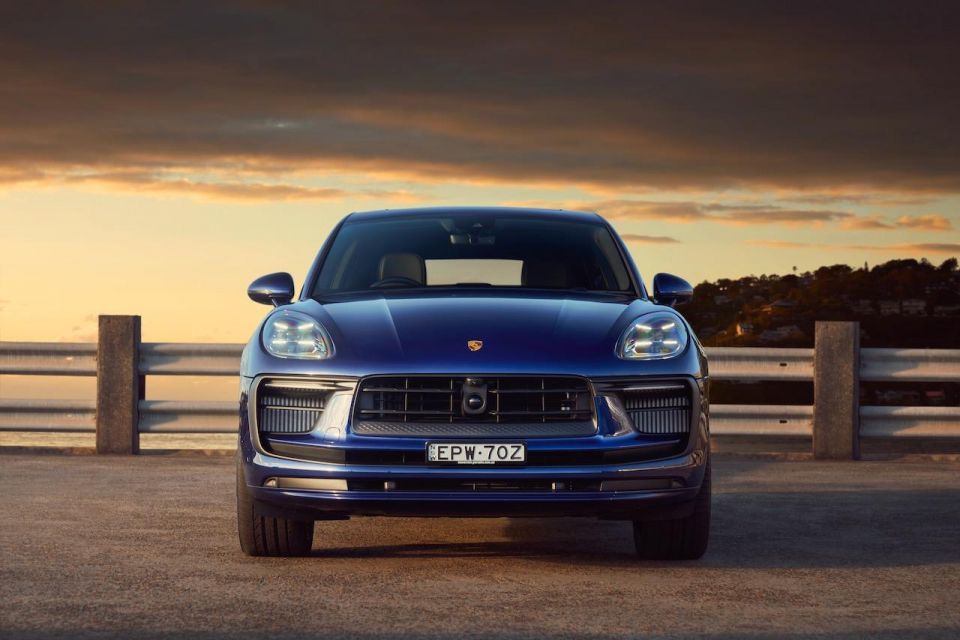
2021 was a good year for Stuttgart-based Porsche, posting growth of 4.4 per cent to 4428 units.
Leading the charge was the Macan crossover, which received a shot in the arm in the form of a minor facelift in the latter stages of the year. With 2328 registrations, the mid-sized veteran was 7.9 per cent up on its 2020 result and accounted for around half of the brand’s local sales.
In second place was, technically, the new Taycan EV, posting 531 sales in its first year on sale. However, the Cayenne (402 units, down 49.2 per cent) and Cayenne Coupe (435 units, down 26.8 per cent) beat out the Taycan if you tally the Cayenne nameplate’s total volume (837 units).
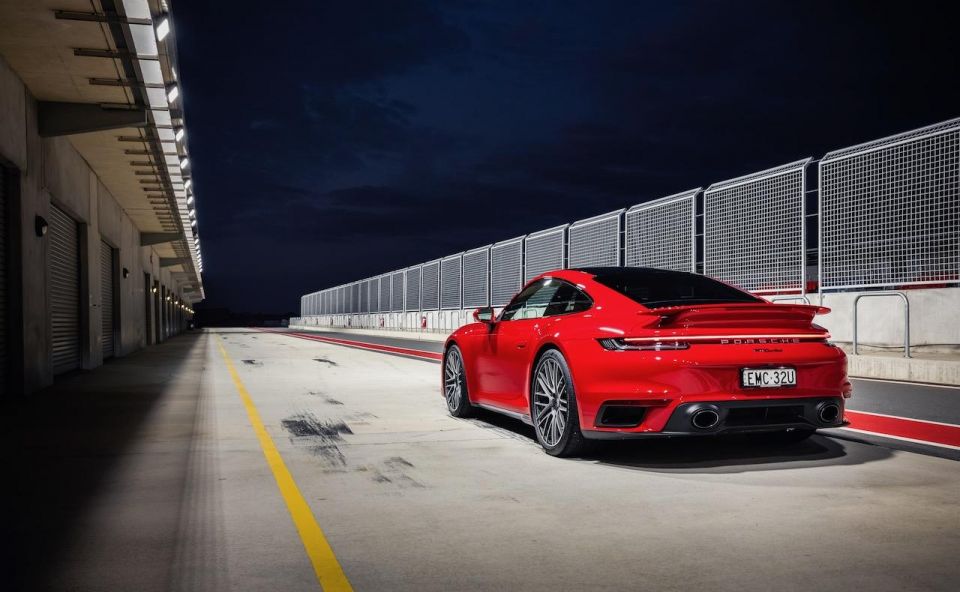
The Porsche 911 sports car returned 428 units (down 0.7 per cent), meaning it wasn’t just the most popular sports car over $200,000, but it also outsold the 718 Cayman (147 units, down 10.4 per cent) and 718 Boxster (109 units, up 32.9 per cent) combined. Further, Porsche sold more 911s than Audi did A5s (206 units), and Toyota did Supras (155 units).
It was only the Panamera sedan that didn’t make it to triple-digit sales, with 48 units for the year (up 108.7 per cent).
Porsche has locked in a handful of launches already for 2022, including the new 911 Carrera GTS range, a new entry-level Taycan RWD as well as a new Taycan 4 Cross Turismo entry variant. We’re also expecting the next-generation all-electric Macan to debut sometime this year.
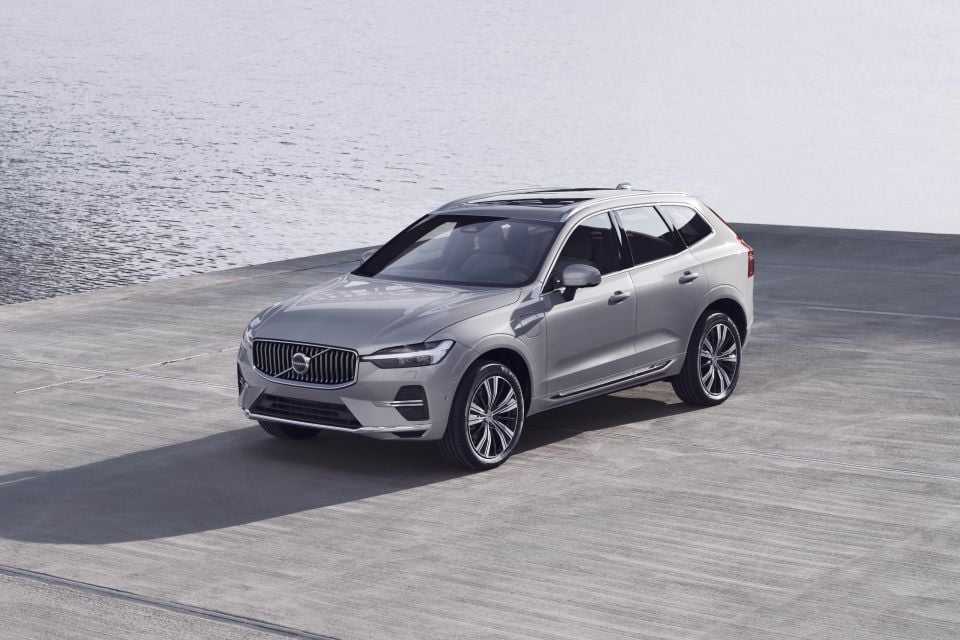
The Swedish brand had a pretty darn good year, growing by 17.2 per cent to 9028 sales, basically knocking on the door of Japan’s Lexus (9290 units).
Volvo’s success comes off the back of strong performance from its SUV nameplates, all of which posted growth in 2021. Only a single unit separated the brand’s top two sellers, with the XC60 mid-size crossover (3688 units, up 29.0 per cent) edging its smaller XC40 sibling (3687 units, up 14.2 per cent) for the gold medal.
Third place was the XC90 flagship, with 1323 sales (up 40.4 per cent). Some distance behind the XC series was the S60 sedan (168 units, down 45.6 per cent) which has been rationalised to a single variant, followed by the new V60 Cross Country wagon (148 units) which replaced the regular V60 (14 units, down 94.7 per cent) during the course of the year.
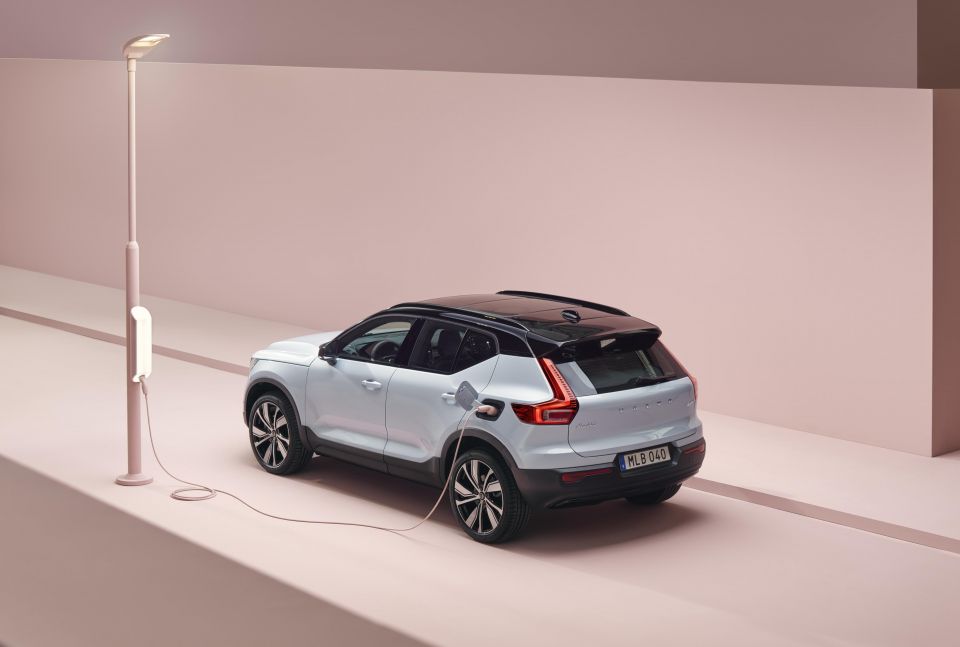
Volvo Car Australia says it has seen unprecedented demand for its all-electric XC40 Recharge Pure Electric crossover, which quickly sold out of its MY21 and MY22 allocations. As such, the lightly revised MY23 model, due mid-year, will be available in both single-motor and dual-motor versions starting at $72,990 plus on-road costs in one highly-specified trim level – get all the details here.
The Chinese-owned Swedish marque will also update the XC60 Recharge and XC90 Recharge plug-in hybrids with more powerful motors and bigger batteries with more range during the first quarter of 2022, which will essentially double the zero-emissions range for both models according to WLTP testing.
Volvo will further bolster its electrified portfolio with the XC40-based C40 Recharge EV, essentially a coupe-styled version of the brand’s baby SUV, due in the second half of 2022.
James Wong is an automotive journalist and former PR consultant, recognised among Australia’s most prolific motoring writers.


William Stopford
52 Minutes Ago
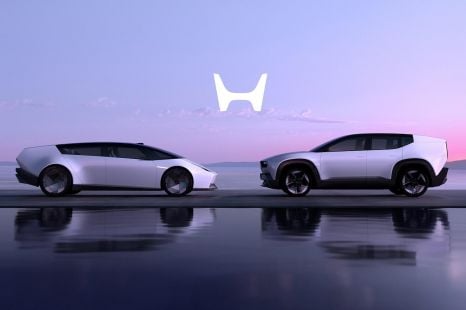

Derek Fung
5 Hours Ago
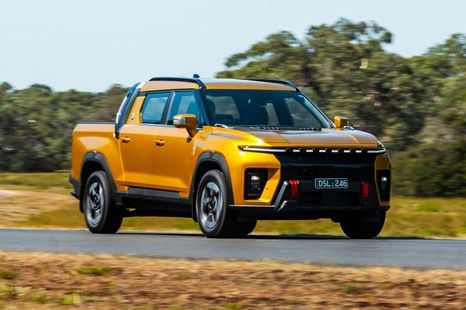

Ben Zachariah
11 Hours Ago


James Wong
11 Hours Ago
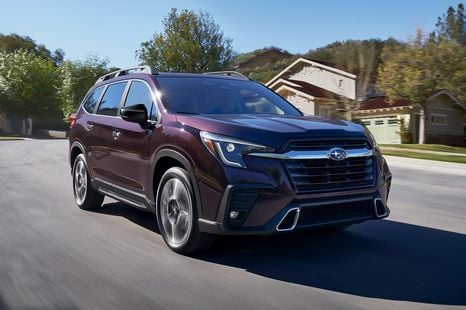

James Wong
11 Hours Ago
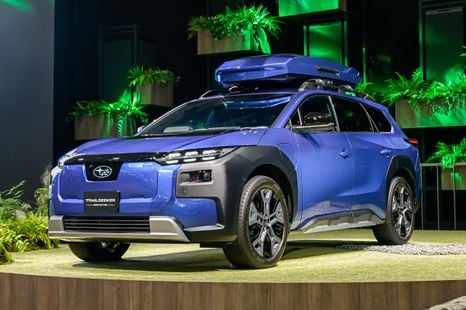

James Wong
11 Hours Ago
Add CarExpert as a Preferred Source on Google so your search results prioritise writing by actual experts, not AI.